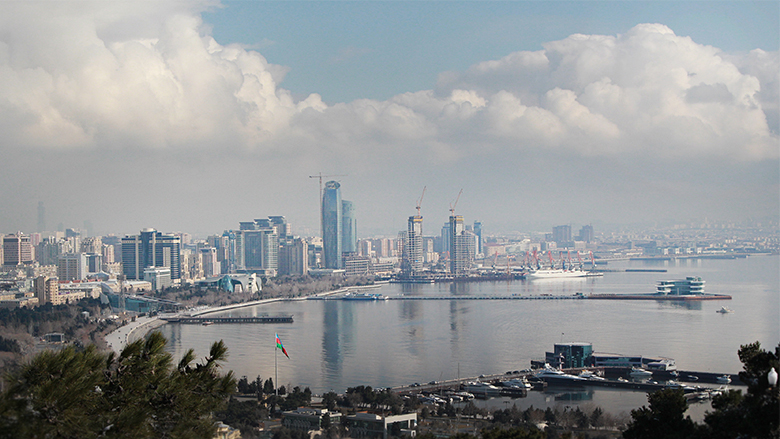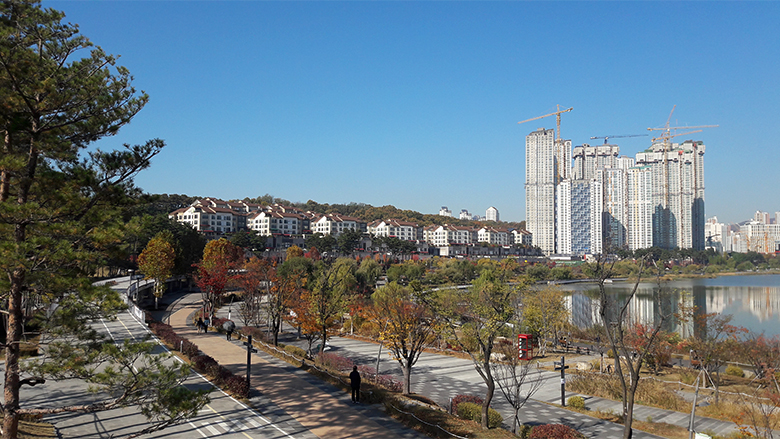Travelling to or from Baku by airplane one is likely to see from the air dozens of small lakes scattered across the surrounding Absheron peninsula. While the lakes might look beautiful from high above, the reality on the ground is somewhat different.
Many of the lakes have been exposed to significant levels of pollution caused by industrial development over the past 150 years.
Azerbaijan’s capital city has around 2.5 million inhabitants today, and its population is expected to reach 3.5 million people within 15 years – growth that will require much more land, infrastructure and services to cater for the needs of its citizens.
Inevitably, Baku will expand outwards, towards old oil fields and polluted lakes that pose major health risks to people. And eventually, that polluted land and water will mean reduced property values and limited economic opportunities for residents of those outer urban areas.
That is why cleaning and regenerating the ecosystems of the lakes around Baku is so important – it will not only improve people’s health outcomes, but also lay the foundations for redevelopment and ecological protection in the future.
With support from the Korean Green Growth Trust Fund, the World Bank is helping the Government of Azerbaijan and Baku city authorities find optimum rehabilitation solutions for one of the lakes – Lake Khajasan. Close to urban areas and important infrastructure in Baku, Lake Khajasan has significant redevelopment potential. And, because it is located upstream among four lakes forming a single watershed, its water levels and water quality have important impacts on the other three lakes, groundwaters, and, eventually, seawater.
International experts, environmentalists, and water, urban and social development specialists from both Azerbaijan and the World Bank are preparing a detailed feasibility study of Lake Khojasan. And they are liaising with experts in the Republic of Korea, who have been dealing with similar challenges in their country.


